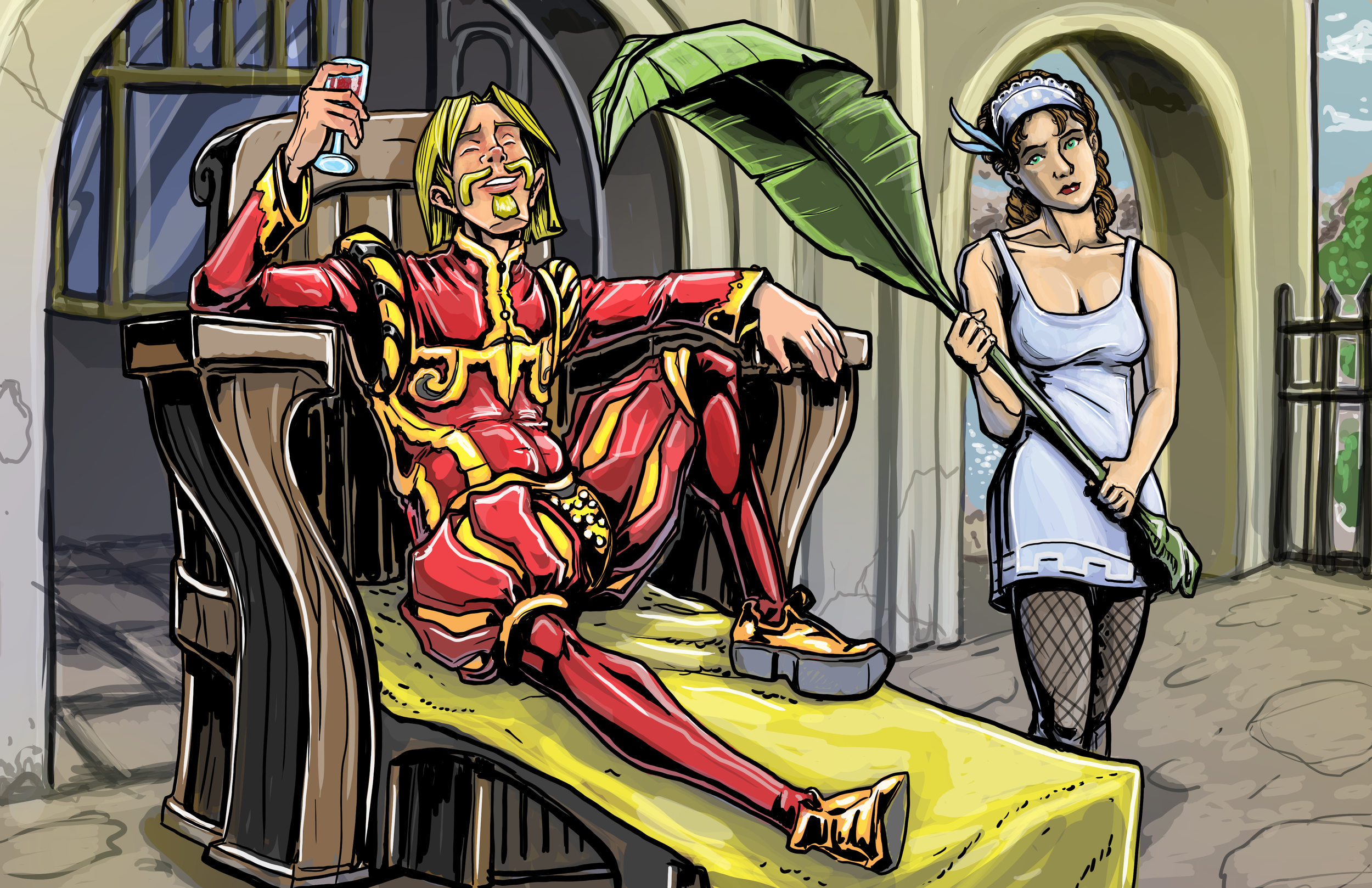Complete Guide to the Persuasion Skill in D&D 5e
The most commonly called upon of the social skills, Persuasion is a high priority for any character with even a half-decent Charisma score. Want to negotiate a better price for that new sword? Need to get on a nobleman’s good side? Maybe you want to talk down that brute that your barbarian friend just spilled his drink all over? All of these constitute a Persuasion check, and said check will often make a big difference in how the rest of the conversation goes.
Using Persuasion to Influence Conversations
This is the most basic use of the skill, though I feel like most tables could run it better than they are currently. Using a quick check to see if you can talk down the price of an item with a shopkeep is fine, but hinging an entire party’s standing with a king of a nation on one check just leaves too much up to chance and doesn’t feel realistic. For big discussions like that, I recommend having the player (or players if multiple people get involved in the conversation) have multiple rolls that can slowly persuade or dissuade the other side, depending on the die roll.
Additionally, if what the party is trying to persuade their target into doing would be beneficial for both sides, or even just for the targets, I like to give players advantage on the check. This rewards players for forming convincing arguments and presenting them eloquently, giving tangible rewards for good roleplay. Just be mindful of your players, as some may not feel comfortable delving this deep into the pool. Having to actually come up with an argument to have a king financially support your adventures might be intimidating for some, and that’s okay. In those circumstances, a bit of hand waving or you as the DM leading the conversation can go a long way.
Persuasion is not Mind Control
Keep it in your pants Bards, no still means no, and no result of a die roll will change that. No matter how high you roll a Persuasion check, you cannot convince someone to do something that they would never do under their own free will. A king will not hand you the keys to his treasury, a Paladin will not massacre an orphanage, and that nice young and very married young lady will not follow you to your bed chamber. Also, don’t be the type of player that thinks any of that stuff will work in the first place. No one likes to play with those types of players. Also don’t be a sleezeball, but that applies to every area of life, not just D&D.
Persuasion and the Charmed Condition
The Charmed condition will give advantage on any Persuasion checks made while conversing with the charmed creature, though it does not inherently confer any additional benefits to the persuasion check. The creature does regard you as a close friend, so you may be able to get it to do a few things that it wouldn’t normally do, but nothing too out of the ordinary.
Features that Enhance Persuasion
The biggest example of this is the Eloquence Bard, which gives a Reliable Talent-like feature that applies to Persuasion checks. You’ll notice that we don’t get anything to make Persuasion checks do things outside of the ordinary, instead all of the features just enhance the roll in some way.
The Myth of the Party Face
People like to think that different classes fulfill traditional rpg roles such as damage, tank, and support, and those roles simply do not apply to 5th edition. Let’s talk about the face role specifically. To expect one person at the table to do all of the important talking isn’t just unrealistic, it’s unfun if actually played out.
Everyone at the table should be engaged with the roleplay, but when the 8 Charisma Fighter gets called on to make the Persuasion check because they’ve been doing most of the talking, and they roll a total of 7, they feel like they’ve made a mistake. Participation should be rewarded, not discouraged, and therefore I recommend that DMs give a little leeway here. If a high Charisma party member is also part of the conversation, see it maybe the situation calls for them to make the roll instead, and if not, remind the Charisma player that they can use the help action out of combat to give the Fighter advantage on their check. This helps the players feel involved in the narrative, while also still correctly punishing the Fighter who dumped Charisma.
Thank you for visiting!
If you’d like to support this ongoing project, you can do so by buying my books, getting some sweet C&C merch, or joining my Patreon.
The text on this page is Open Game Content, and is licensed for public use under the terms of the Open Game License v1.0a.
‘d20 System’ and the ‘d20 System’ logo are trademarks of Wizards of the Coast, Inc.
and are used according to the terms of the d20 System License version 6.0.
A copy of this License can be found at www.wizards.com/d20.



